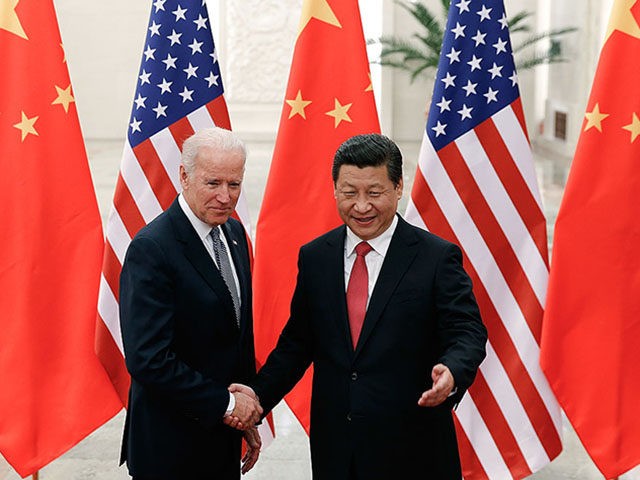Democratic presidential nominee Joe Biden is proposing a penalty on U.S. companies that would put the U.S. tax code into alignment with China’s predatory trade policies.
Biden, who made a push to be seen as defending U.S. interests on economic issues with a speech in Michigan on Wednesday, proposed a ten percent tax penalty that would apply to U.S. companies that move operations overseas.
The surtax appears to apply to services and goods sold to U.S. customers from a U.S. company’s foreign subsidiary.
Daniel Bunn of the Tax Foundation explained in an article on the proposal”
If a company based in the U.S. has a subsidiary in another country, and that foreign subsidiary sells its products or services to U.S. customers, the 10 percent surtax would apply. For a business facing Biden’s proposed 28 percent corporate tax rate, the additional surtax would result in a 30.8 percent tax rate.
That sounds like a tariff—but with an anti-U.S. twist. A regular trade tariff would apply to goods and services sold into the U.S. by anyone, whether they were a foreign or domestic manufacturer. Biden’s offshoring surtax, however, applies only to U.S. companies importing goods or services from their own affiliates.
This would seem to exempt Apple’s iPhone because it is manufactured by Taiwan’s Foxconn, a third-party contractor rather than a subsidiary of Apple.
The effect of the tax would be to penalize companies for doing their own manufacturing abroad—and reward those with arrangements with foreign manufacturers. The result would be that many U.S. manufacturers would avoid the tax by moving production to foreign contractors. Similarly, although the Biden campaign says the tax would apply to call centers and other services performed abroad for the U.S. market, many of these would simply migrate into outside contractors.
This would be a boon to China. The Trump administration has been pressuring China into dropping its requirement that U.S. businesses manufacturing products in China do so either through Chinese companies or with joint-ventures controlled by Chinese partners. Biden’s policy would cement this predatory trade preference into U.S. tax law. Instead of resisting joint ventures and contractor requirements, U.S. companies would seek them out to avoid the offshoring tax penalty.
In short, Biden is proposing to put U.S. tax policy into alignement with China’s trade policy.
That’s perverse. Even worse, Biden is trying to sell the plan as one that would bolster U.S. manufacturing and create U.S. jobs. In reality, it would only encourage complete offshoring and put an end to U.S. business resistance to China’s predatory trade policies.
The Biden campaign did not respond to inquiries about the tax proposal.

COMMENTS
Please let us know if you're having issues with commenting.